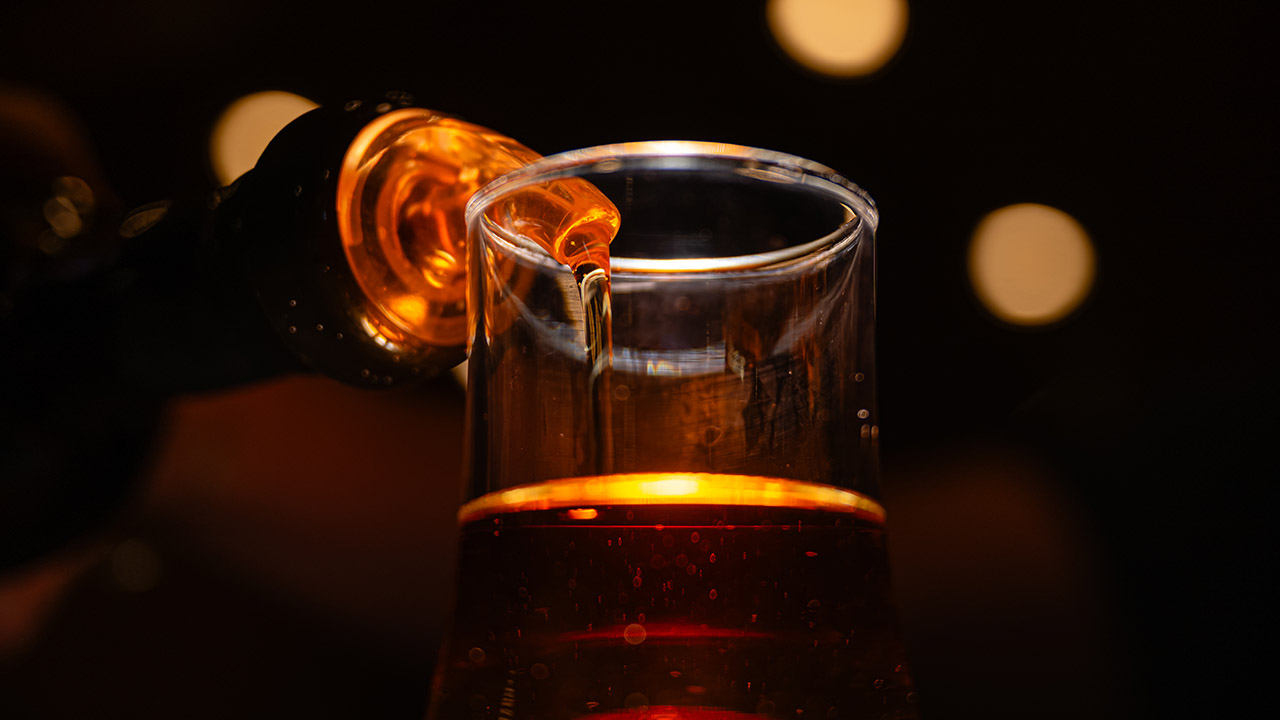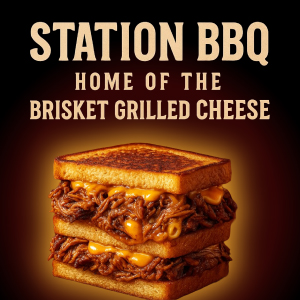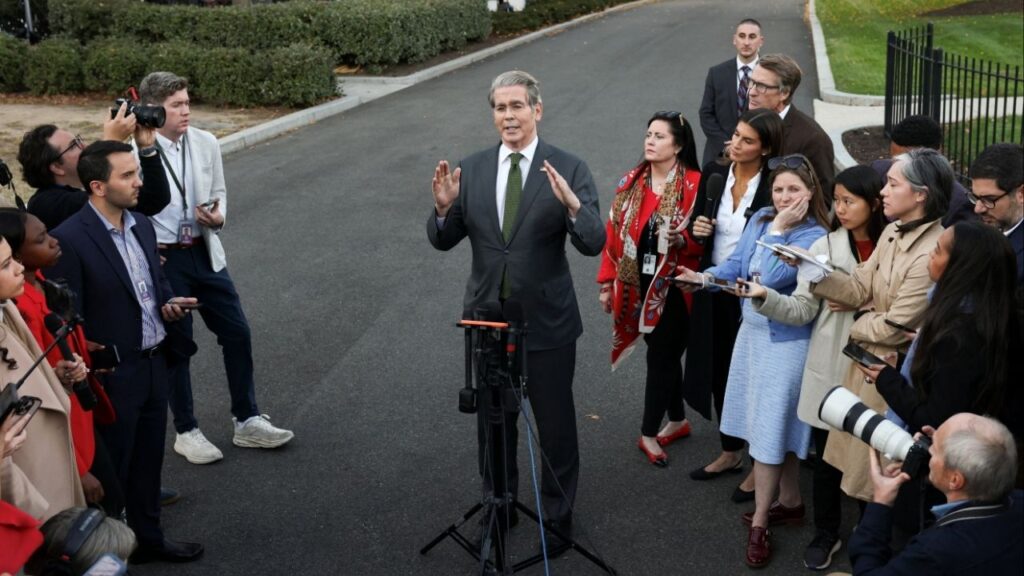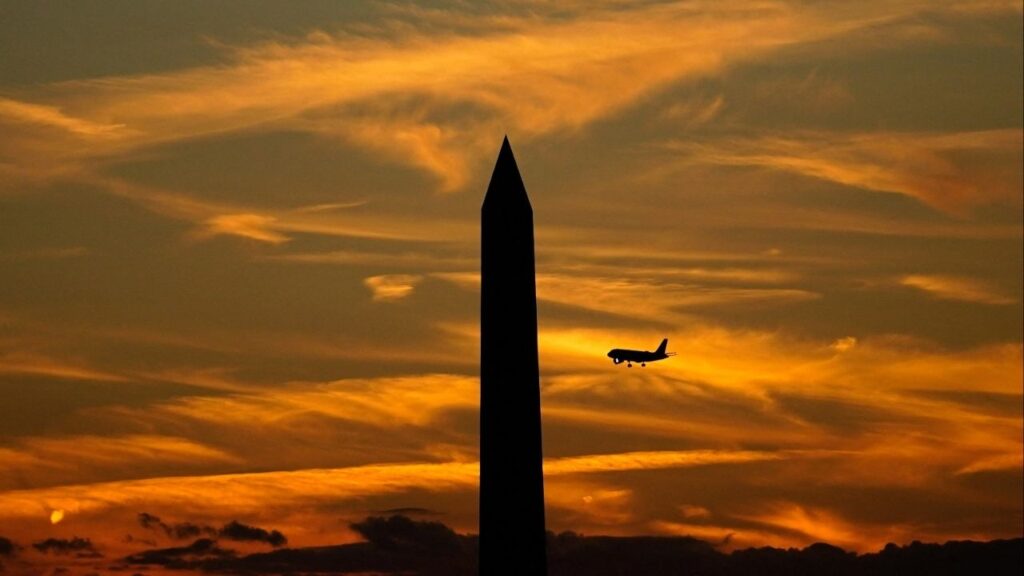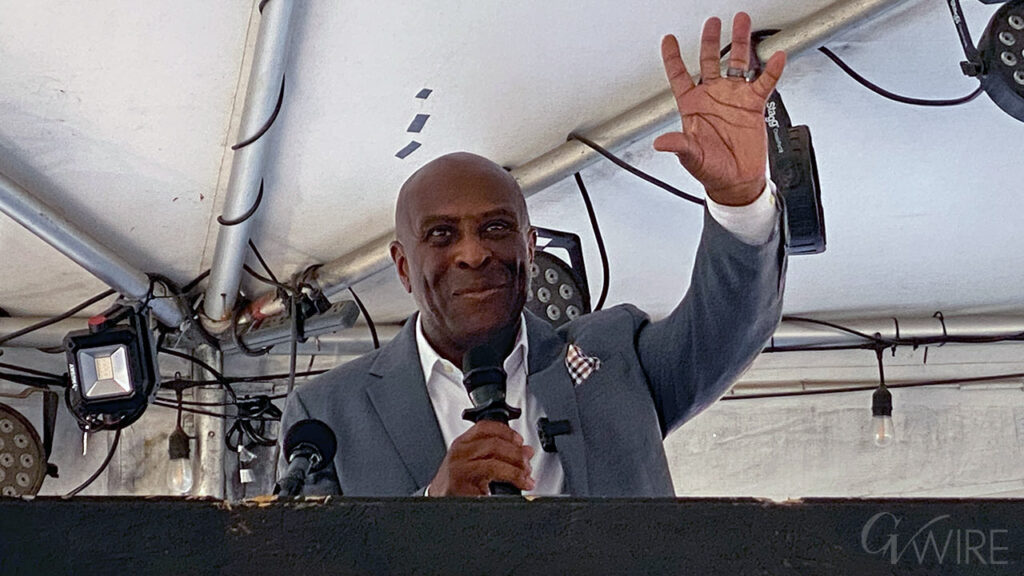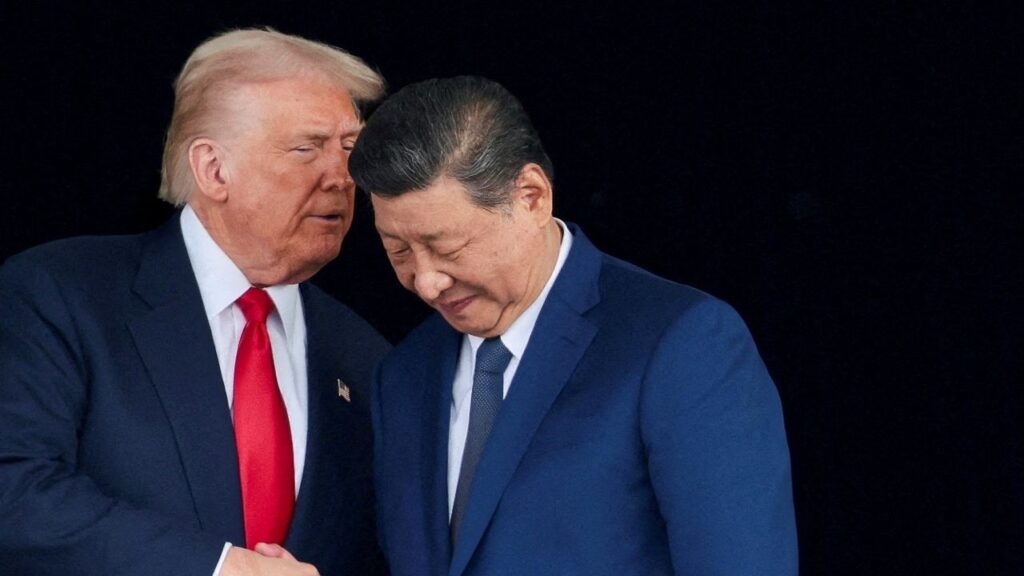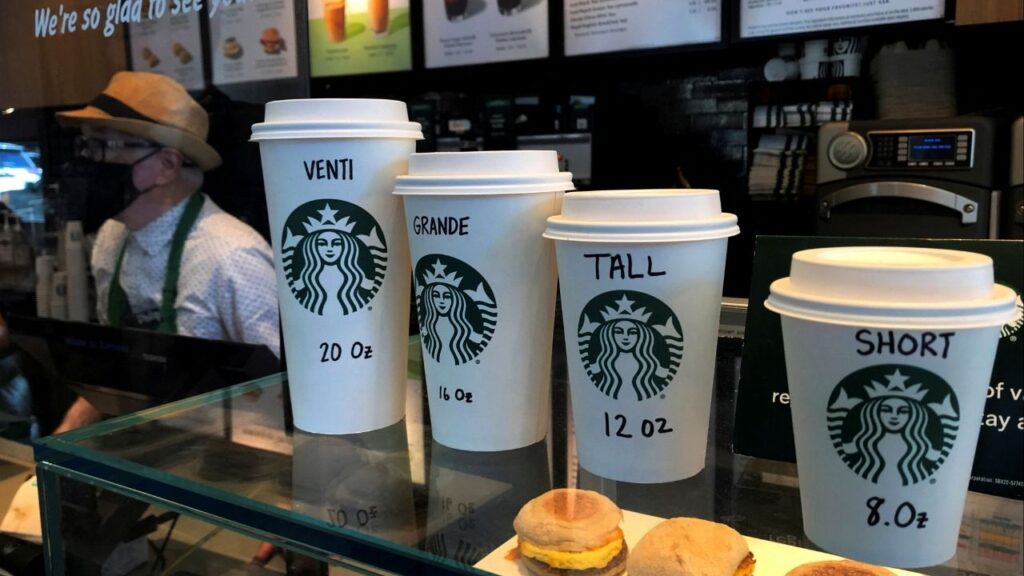A glass of bourbon is poured at Preservation Distillery in Bardstown, Ky. on April 2, 2025. America’s already battered spirits industry will see its supply squeezed if tariffs raise import costs while other countries’ retaliation closes off export markets. (Jon Cherry/The New York Times)

- The whiskey industry faces potential export restrictions and higher production costs due to Trump's tariffs.
- Farmers and barrel-makers fear significant economic losses as whiskey sales may decline.
- Small distilleries worry about unfair impacts on their growth as foreign markets retaliate with taxes.
Share
|
Getting your Trinity Audio player ready...
|
LOUISVILLE, Ky. — Ryan Bivens, a Kentucky grain farmer who sells corn to one of America’s biggest bourbon and whiskey producers, operated at a loss last year as he faced higher production costs from persistent inflation.
President Donald Trump’s trade war is about to make that economic pain even worse.
Industries across the United States are bracing for higher prices for the imports they need to make their products, as well as new restrictions on their exports as countries around the world prepare to retaliate against Trump’s tariffs. America’s whiskey industry has become a favorite target of such retaliation, and the blowback is going to be especially painful for distillers and the companies that supply them, from farmers to barrel-makers.
While Trump aims to protect domestic sectors such as steel and aluminum, his blunt strategy is putting the economic squeeze on other American industries, hitting many of the workers who supported him in red states and helped propel him back to the presidency.
“This is coming at a pretty tough time for us right now,” said Bivens, a Republican state representative who owns a 10,000-acre corn, soybean and wheat farm in Hodgenville. “We don’t want to see this going on for a long time — we can’t afford for it to.”
Bivens supports Trump’s efforts to negotiate better trade deals. But his business could suffer if American bourbon distilleries, which rely heavily on corn, have to scale back orders for his crop. He is also facing pressure from other directions: On Friday, China announced new retaliatory tariffs on soybeans, which Bivens exports.
Whiskey Industry Faces Global Backlash
Trump’s sweeping tariffs have kicked off a trade war that many American businesses long feared. The European Union announced plans to impose 50% tariffs on all American whiskey in response to Trump’s steel and aluminum tariffs, prompting the president to threaten 200% tariffs on European wine and other alcohol if the bloc followed through. Canada has also imposed 25% tariffs on American whiskey, and in some provinces, brands including Jack Daniel’s have been pulled from store shelves.
“We’re a very anxious industry right now, because there is no reason for our industry to be implicated,” said Chris Swonger, president of the Distilled Spirits Council of the United States, who argued that the industry should be “liberated” from tariffs entirely.
In late March, distillers from around the country traveled to Washington to press Republican lawmakers about the tariffs. Several said the lawmakers understood their concerns but believed that there was little they could do to change Trump’s mind about his trade agenda. However, Senate Republicans did vote last week to reverse Trump’s tariffs on Canada, which is Kentucky’s largest trade market.
“As I have always warned, tariffs are bad policy, and trade wars with our partners hurt working people most,” Sen. Mitch McConnell, R-Ky., said last week. He noted that Kentucky produced 95% of the world’s bourbon.
The tit-for-tat trade actions will not hit just big, iconic brands like Jim Beam, Wild Turkey and Woodford Reserve. Ripple effects up and down the supply chain will affect small distillers, barrel-makers, equipment manufacturers and farmers.
Unpredictable Market Challenges
The American whiskey industry has faced an unpredictable market in recent years.
It was hit by Trump’s first-term trade wars, experienced a pandemic-era boom amid an uptick in alcohol consumption and now has been experiencing a lull as consumers explore healthier options or alternatives such as cannabis. Elevated commodity prices during the last few years made producing spirits more expensive, while inflation made consumers more careful with their spending on alcohol. Last year, the United States exported $1.3 billion of American whiskey.
Across Kentucky, there is growing worry that the second round of trade wars will hit even harder and at a more vulnerable moment.
Brown-Forman, the maker of Jack Daniel’s and Woodford Reserve, is closing its barrel-making operation in Louisville this month and announced plans to lay off 12% of its workforce. Bartenders in the area have been warned that prices could soon go up because exports of expensive spirits to overseas markets will be curbed. On distillery tours, guides lamented the increased costs of the steel strips that are imported from China to assemble barrels and of the rye that comes from Canada.
Marci Palatella, owner of Preservation Distillery in Bardstown, Kentucky, said she bought 90% of her materials locally but that she was worried about what the soaring prices for glass bottles would do to her business.
“To tax imports from almost every source only punishes small companies like ours,” Palatella said. “And in retaliation, we get hit doubly hard as foreign markets are going to tax our Kentucky bourbon.”
She added that she did not intend to raise prices on customers but fears that the tariffs will be “unfairly hitting the growth of small businesses like ours.”
Ripple Effects Throughout the Industry
If whiskey sales slump, the barrel-makers will also feel it. Brad Boswell, CEO of Independent Stave Co., which operates mills and barrel cooperages in Kentucky and across the South, said he had been operating his business more conservatively as he assessed the trade situation.
Although distillers tend to operate on a multiyear production plan, he said he had observed distillers becoming more conservative as they anticipated weaker exports. This, he said, would also have a detrimental impact on local loggers and mills.
“If there’s a draconian tariff, for political reasons, placed on American whiskey, the ripple effects are much more than people would expect, given all the inputs and complexity of making bourbon and American whiskey,” Boswell said.
Beyond barrels, the makers of stills, or giant distilling pots that are usually made of copper, could soon be facing new challenges.
In February, Trump initiated an investigation into whether foreign production and imports of copper into the United States posed risks to America’s economic and national security. That could lead to higher prices for copper imports, which would make the stills manufactured by Mike Sherman of Vendome Copper & Brass Works in Louisville, more expensive.
The family-owned company, which was founded in 1903, imports most of its copper from Germany because American copper mills do not have the capacity to make copper sheets that are wide enough for its stills. Copper tariffs would increase the cost of making the stills, which can sell for more than $250,000, and some of these costs would have to be passed on to distilleries.
“On the copper tariffs, it would definitely raise the price a little bit on our equipment,” Sherman in an interview at his metal fabrication plant.
But like businesses that will have to confront Trump’s tariffs, the impact could end up cutting both ways.
Sherman noted that some of his toughest competition came from copper stills that were produced in China and exported to the United States and sold for a quarter of the price. Tariffs on those imports, which he said were of inferior quality, would be welcome.
“When that Chinese one goes bad or has a leak, that company is not going to come over here and fix it,” Sherman said.
For Bivens, the biggest financial problem could be China’s plans to enact new trade restrictions on American soybeans. He recalled that China’s 2018 soybean tariffs crippled American farmers who rely heavily on its market and that during Trump’s first term he had to take money from one of the president’s farmer relief programs to stay afloat.
Despite those concerns, Bivens said he believed Trump understood that protecting American agriculture was also a national security issue. He supports the president’s plans to keep taxes low and scale back environmental regulations that make it harder to operate farms. And he hopes that on balance, it will be worth the trouble of the tariffs.
“We’ve got a country to save,” Bivens said in an interview in his truck while driving around his farm. “It’s going to sting us pretty good.”
—
This article originally appeared in The New York Times.
By Alan Rappeport/Jon Cherry
c.2025 The New York Times Company



